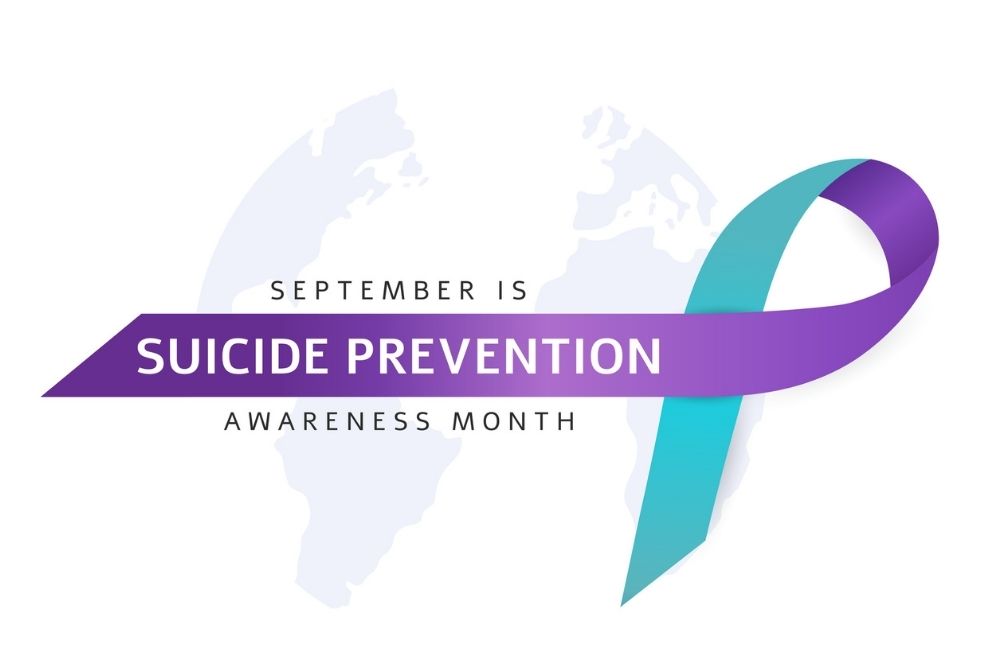It is human nature to feel uncomfortable thinking or talking about suicide. Unfortunately, talking about suicide is one of the most effective strategies for preventing people from killing themselves. At Highland Hospital Behavioral Health, we want to take a moment this September, which is Suicide Prevention Month, to give you the tools to recognize and address suicide risks in people you love.
How You Can Save Lives
During Suicide Prevention Month, you can:
- Use your social media to share information about programs that support people experiencing suicidal thoughts, such as:
- 988 (the National Suicide and Crisis Lifeline)
- The National Alliance on Mental Illness (NAMI)
- The Trevor Project
- The Trans Lifeline
- Other national and local programs
- Find a Mental Health First Aid or other suicide prevention class in your area to attend
- Contact your elected officials to advocate for increased funding for mental health, addiction, and housing initiatives.
- Talk to people in your life about mental health and suicide
Understanding Who Is At-Risk
Never assume that your friends, family, or colleagues are immune to suicidal thoughts. Anyone can experience thoughts about ending their life. People who are at the highest risk include:
- Anyone with mental health disorders, especially mood disorders
- People with impulsive or aggressive tendencies
- Individuals with chronic or painful health problems
- Anyone with a personal or family history of suicide attempts
- People who have had recent losses, such as employment, housing, or relationships
- Individuals with access to the tools to kill themselves
- Anyone living in an area where there has been a cluster of suicides or a lot of media coverage of suicide
- People who are lonely or isolated
- Individuals who feel unable to ask for help or who don’t receive it when they do ask
- Anyone who has been a victim of bullying, racism, or abuse
LGBT+ people, immigrants, ethnic minorities, or domestic abuse survivors
- People who work in fields with higher suicide risk
Suicide and Gender
While women are more likely than men to attempt suicide, men are far more likely to kill themselves. This is largely due to the means that are typically used in an attempt. Men are more likely to use a gun than women, which is far more likely to result in death than overdose, the most common method attempted by women.
Warning Signs
When you understand who is most at risk for suicidal thoughts, you may also spot red flags more easily, even easily overlooked ones, like a person who suddenly seems happier after a period of distress. This could be mistaken for someone getting their life together, when they are actually showing signs that they have finalized suicide plans and decided to move forward with killing themselves. More common and easily recognized signs of suicidal ideation include:
- Either jokingly or seriously, writing, talking, or posting about:
- Death
- Suicide
- Wanting to die
- People being better off without them
- Hopelessness or worthlessness
- Being stuck
- Withdrawing from friends, family, co-workers, or the community
- Big changes in appearance, hygiene, sleeping patterns, eating, or mood
- Collecting items they would use in an attempt, such as a gun and ammunition, pills, blades, etc.
- Self-harm – though not every person who engages in self-harm is suicidal, there are common factors between self-harm and suicide attempts that indicate the need to screen people who engage in self-harm for thoughts of suicide.
- Increased substance use that can last days, weeks, or months before a suicide attempt, but also often occurs immediately before an attempt
- Wrapping up loose ends
- Paying off debts
- Reviewing or buying life insurance policies
- Creating a will
- Giving away valued possessions
- Saying goodbye to people like it’s permanent
Helping a Suicidal Person
If you are worried that someone in your life may be experiencing suicidal thoughts, talk to them right away:
- Ask them directly if they are considering killing themselves
- Remove the means they could use to kill themselves
- Offer to help them reach out to their primary care doctor or mental health team
- Don’t argue, make threats, or raise your voice
- Don’t call them selfish for considering suicide
- Be patient
- Don’t leave them alone
- If you don’t feel you can keep them safe, call 911 or take them to the nearest ER
At Highland Hospital Behavioral Health in Charleston, West Virginia, we know that people can and do recover from suicidal thoughts if their friends and family can recognize the signs and connect them with supportive professionals. We are a leading provider of behavioral healthcare services in our region, and we offer support to our patients and their families.






